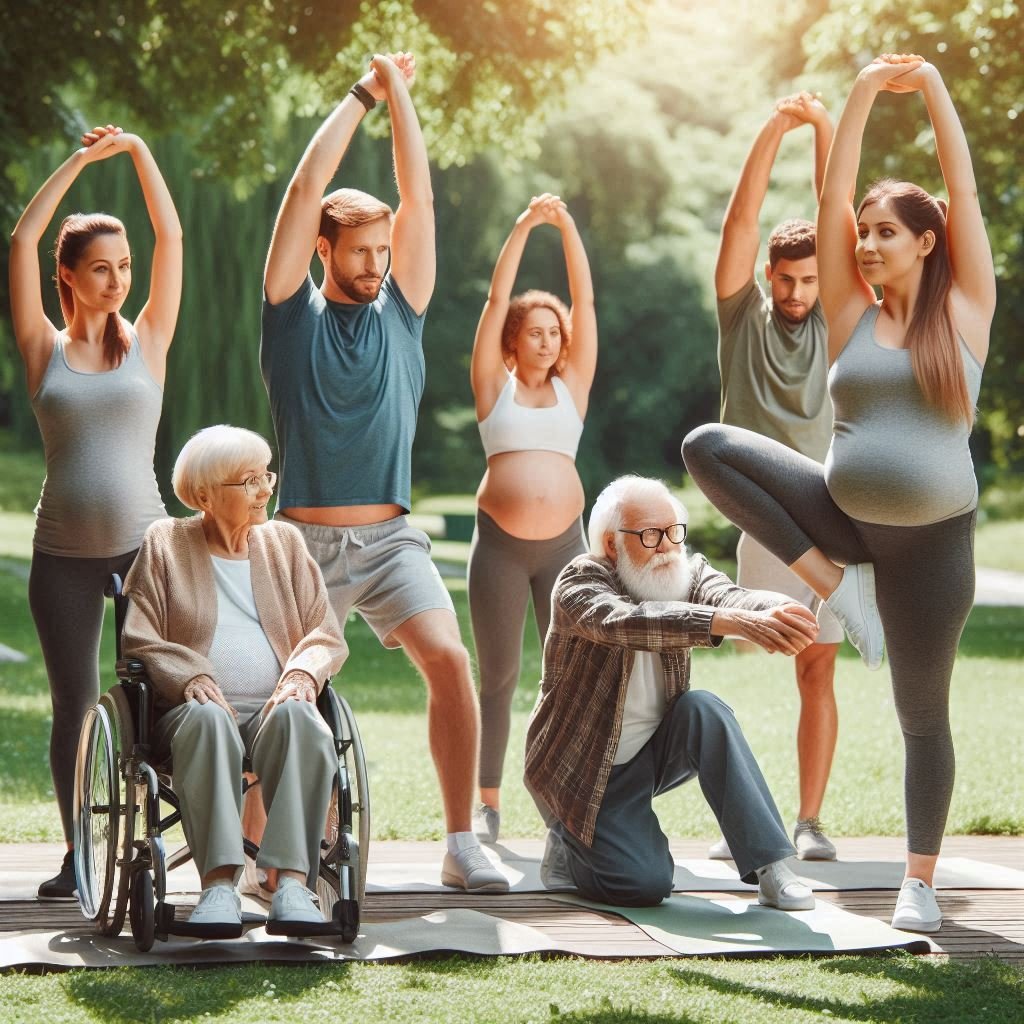
Stretching is an important part of any workout routine. It helps increase your flexibility and reduce your chances of injury. Stretching is a natural activity often performed without thinking by most people and many animals. Stretching often occurs right after waking from sleep, after long periods of inactivity, or after exiting confined spaces. Stretching exercises are thought to give you more freedom of movement to do the things you need to do and the things you like to do. General static stretching exercises that could form part of the cool down program at the end of a training session when stretches are held for 10 seconds or to improve the mobility and range of movement when stretches are held for 30 seconds.
There are many exercises for Stretch. Knee to chest from above position, straighten one leg and pull the other knee into your chest until you feel a stretch in your hip. Quadriceps stretch is the muscle in the front of the thigh, important for lifting your knees and increasing your speed. It is the “quads” that often go at the end of marathons, causing runners to come shuffling across the finish line because they have a hard time lifting their feet off the ground. In lunge position, rest back knee on the floor, with front knee at 90 degree angle, abs in. Gently press forward until you feel a stretch in the front of the leg/hip. Switch legs. Inner Thigh Stretch-Sit on floor with feet pressed together. Keeping abs in, lean forward until you feel a gentle stretch in your inner thighs.
Piriformis stretch is responsible for lateral rotation of the hip. It is particularly important to athletes who have to change route such as tennis players and running backs in football. But though runners run straight ahead, keeping the piriformis muscle loose is important for overall flexibility. Lying on your back, cross your legs just as you might while sitting in a chair. Spine Twist stretch exercise-Lying on the floor, place right foot on the left knee. Using your left hand, gently pull your right knee towards the floor, twisting your spine and keeping left arm straight out, hips and shoulders on the floor. Multiple stretching exercises should be used to gain the full effects of stretching. Stretching exercise may not be enough to prevent all types of injury.
Stretching Exercises Tips:
1. Do not stretch to the point of pain.
2. Do not bounce up and down while stretching.
3. Your breathing should be slow and under control.
4. Breathe slowly as you hold the stretch.
5. Always breathe naturally. If you are unable to do this – then ease up on the stretch a bit.
6. Avoid the no pain, no gain mentality.
7. Do not hold your breathe.




